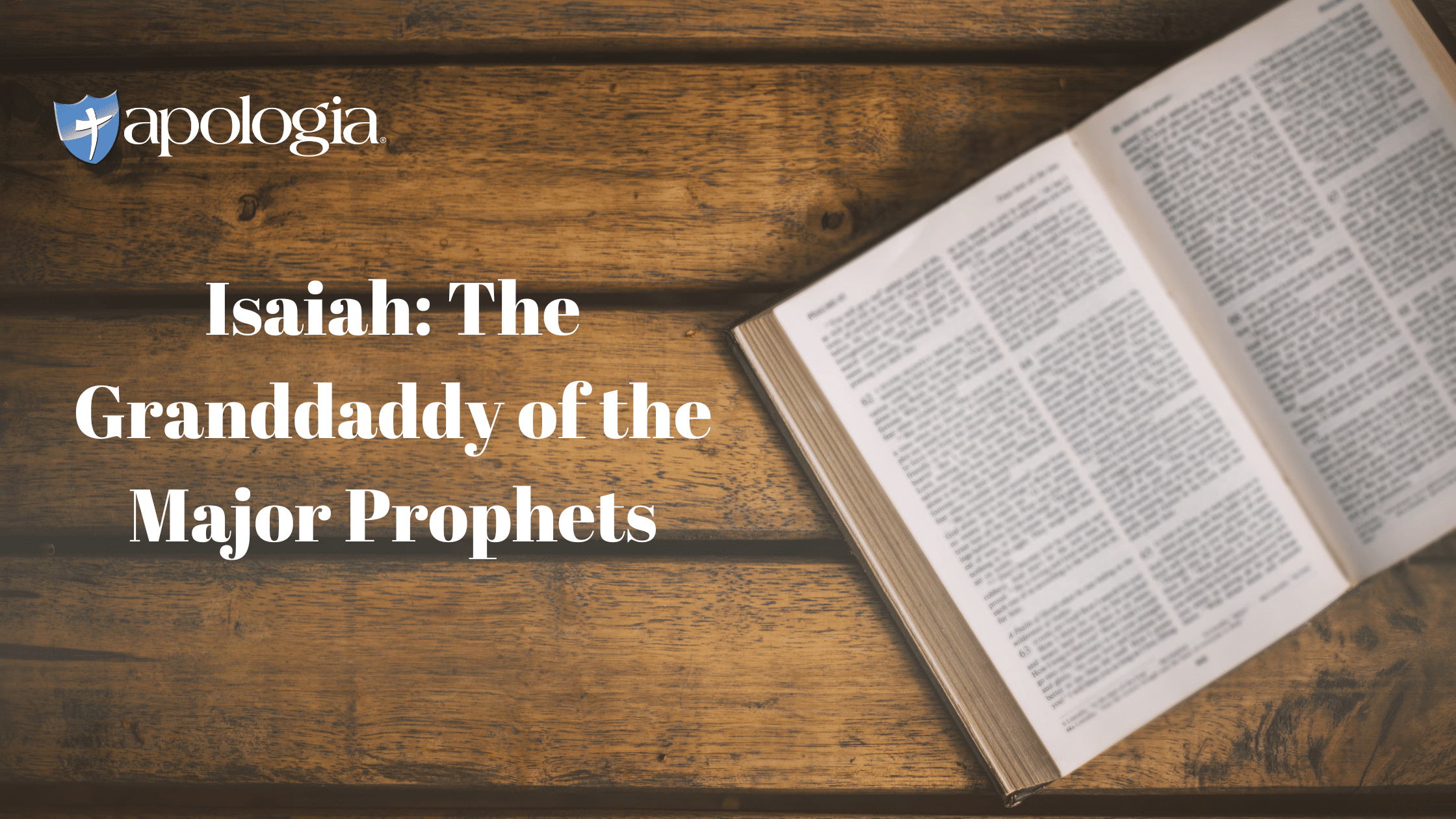
Isaiah: The Granddaddy of the Major Prophets
The Spirit of the Lord God is upon me, because the Lord has anointed me to bring good news to the poor; he has sent me to bind up the brokenhearted, to proclaim liberty to the captives, and the opening of the prison to those who are bound; to proclaim the year of the Lord’s favor, and the day of vengeance of our God; to comfort all who mourn . . . (Isaiah 61:1–2)
Isaiah is the first of the five major prophets in the Old Testament. These prophets are called “major” not because they are more important than the twelve “minor” prophets, but quite simply because their books are longer. And containing sixty-six chapters, Isaiah is arguably the granddaddy of them all.
Much like the Bible is divided into the Old Testament and New Testament, the book of Isaiah can be divided into two sections. The book’s first thirty-nine chapters are primarily about condemnation. Sure, there are a few places (like chapter nine) that contain positive messages of hope and the coming Messiah, but the overarching theme here is disobedience, disapproval, and punishment. The remaining chapters of the book are chiefly about consolation. In fact, chapter forty transitions to this new theme with the words, “‘Comfort, comfort my people,’ says your God.”
Notice anything interesting about the number of chapters in Isaiah? The first part has thirty-nine chapters, and the second half has twenty-seven. Part one is about condemnation, whereas part two focuses on the good news of consolation, redemption, and comfort. Sounds like how the Bible itself is divided into thirty-nine books of the Old Testament and twenty-seven books of the New Testament.
One of the signature passages of Isaiah is chapter fifty-three, which describes the suffering servant led like a lamb to the slaughter—a silent sheep, not uttering a word, despised and rejected by those he came to save. Clearly, the book of Isaiah points us to the Messiah. For what it’s worth, even Isaiah’s name (meaning “Yahweh is Salvation”) points us to Christ.
Seven centuries later after Isaiah, at the synagogue in Nazareth, Jesus read Isaiah 61 aloud and then announced, “Today this Scripture has been fulfilled in your hearing” (Luke 4:16–21). He would later be “pierced for our transgressions” and “crushed for our iniquities”(Isaiah 53:5). In the end, Jesus fulfilled more than 300 prophesies from this one book!
Some people read the Old Testament—the “condemnation” part of the Bible—and are quick to dismiss it as a book of ancient stories and outdated rules. The whole Bible, however, is a gift from God to show us His righteousness and grace. (Two good things that go great together!) We must understand that condemnation was necessary in order to reveal the consolation: Jesus, the Savior of the world.
Heavenly Father, help me to understand the righteous punishment of sin and to accept and treasure the comfort and consolation that comes only with life in Jesus Christ. Help me to read the Old Testament prophets with a new appreciation for how their message points me to Christ. Pour your Spirit into my life that I might live by faith, with the passion to do your work and the perseverance to stay the course all the way to the finish line. I pray this in the precious name of the One who died to take away my sin. Amen.
Walking by faith and enjoying the homeschooling adventure of a lifetime!

Davis Carman
© 2017 Davis Carman
Apologia.com
If you enjoyed this devotional by Davis Carman, you may also enjoy his devotional entitled Fearfully and Wonderfully Made.
Davis is the president of Apologia Educational Ministries, the #1 publisher of Creation-based science and Bible curriculum. He is the author of four illustrated children’s books designed to help kids learn a biblical worldview. He believes that if there was ever a time to homeschool, it is now! Davis’s four books include: Good Morning, God, based on Deuteronomy 6, A Light for My Path, an ABC book based on Psalm 119, In the Beginning, based on the Creation account in Genesis, and Psalms to Know Early.

